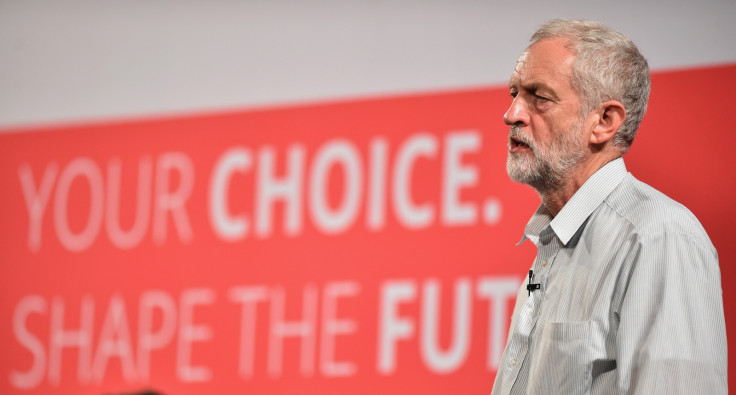Corbyn-omics: Labour left frontrunner wants a £10 minimum wage and abolition of business tax subsidies

Tony Blair's intervention into the Labour leadership contest, in which he warned the party of a lurch to the left, overshadowed the release of Jeremy Corbyn's economic plan.
A shock new poll has revealed that the socialist firebrand is on course to become Ed Miliband's successor and subsequently face off with David Cameron during prime minister's questions (PMQs).
Labour's economic competency came under intense scrutiny during the election and the devastating poll result saw Ed Balls, the party's shadow chancellor and Gordon Brown acolyte, lose his Morley and Outwood seat.
The next Labour leader, therefore, must be able to able to woo the electorate with a batch of vote winning economic policies. With that consideration in mind, IBTimes UK has dissected Corbyn's economic paper.
£10 minimum wage
The debate around the minimum wage featured prominently in the election campaign. Miliband had continually attacked George Osborne and the Tories for a so called "cost of living crisis", but the slogan lost some of its power after real wages began to rise on the back of falling inflation.
Labour later promised to raise the statutory wage to £8 ($12.50) per hour by 2020, up from the £6.50 rate at the rime.
The proposal was controversial on both the left and right side of British politics. Business bodies and politicians warned of the government interfering with the Low Pay Commission, which takes soundings from companies, trade unions and academics to recommend a rate.
Meanwhile, the Trades Union Congress (TUC) said Miliband's offer wasn't enough – the wage was set to hit £8 without Whitehall intervention and a higher rate of £10 per hour was needed to help low paid workers.
The election over and a Tory majority in the bag for David Cameron, his chancellor parked his economic tanks on Labour's lawn and announced that the government would introduce a £9 "living wage" by 2020. Osborne's move was clearly bold and was accompanied by controversy. The Office for Budget Responsibility (OBR), for instance, estimated that the policy would cost 60,000 jobs.
But Corbyn has blasted the chancellor and accused the top Tory of "trickery". "His political trick on the minimum wage was exposed within hours," the socialist's economic plan read.
However, the Islington North MP doesn't spare Miliband in his analysis, claiming Labour had been "too modest" and a £10 per hour rate would provide a "genuine living wage".
More tax on the rich
Osborne had some attractive offerings for the middle-classes and rich in his budget. The chancellor pushed up the inheritance tax bracket for family owned properties up to £1m and pulled 130,000 workers out of the 40p tax bracket by hiking the rate to £43,000 per year in 2016.
But Corbyn was not impressed by the chancellor's policies and took on the "myth" that only the rich are "wealth creators".
"Wealth creation is a good thing: we all want greater prosperity. But let us have a serious debate about how wealth is created," the Labour leadership hopeful said.
"If we follow the Conservatives tale then it is logical to cut taxes for the rich and big business, not to bother to invest in the workforce, and be intensely relaxed about the running down of public services. But in reality wealth creation is a collective process between workers, public investment and services, and, yes, often innovative and creative individuals."
Wealth creation is a good thing: we all want greater prosperity. But let us have a serious debate about how wealth is created.
So what would Corbyn actually do to overcome this problem? Well, the economic plan fails to outline what personal tax rates he would introduce, but the socialist suggested that the rich could pay more into the system.
"Labour must make the tax system more progressive: Ensuring that those with the most pay the most, not just in monetary terms, but proportionally too," he said.
The 66-year-old, however, gave a fuller flavour of his plans around corporate tax levies, suggesting "stripping out" tax reliefs and subsidies open to the business, which he claimed are worth a whopping £93bn a year.
"Money which would be better used in direct public investment, which in turn would give a stimulus to private sector supply chains," he said.
"These funds could be used to establish a 'National Investment Bank' to invest in the new infrastructure we need and in the hi-tech and innovative industries of the future."
Corbyn concludes that "Labour must become the party of economic credibility and economic justice" and argued that his plan "works for all, provides opportunity for all, and invests in all – rich and poor, north, south, east and west".
© Copyright IBTimes 2025. All rights reserved.





















